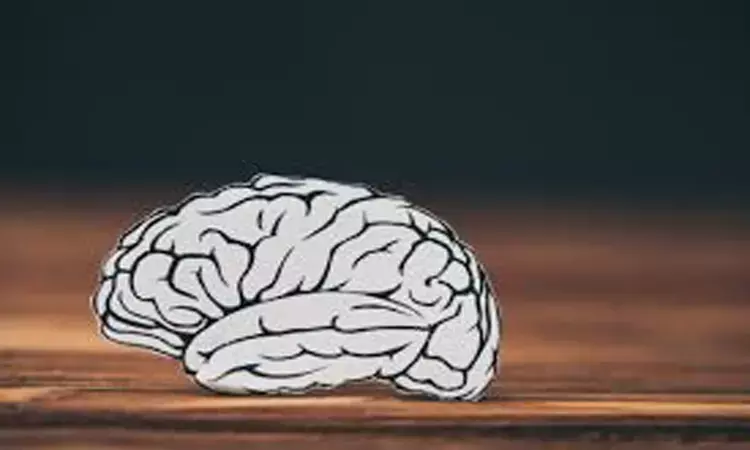- Home
- Medical news & Guidelines
- Anesthesiology
- Cardiology and CTVS
- Critical Care
- Dentistry
- Dermatology
- Diabetes and Endocrinology
- ENT
- Gastroenterology
- Medicine
- Nephrology
- Neurology
- Obstretics-Gynaecology
- Oncology
- Ophthalmology
- Orthopaedics
- Pediatrics-Neonatology
- Psychiatry
- Pulmonology
- Radiology
- Surgery
- Urology
- Laboratory Medicine
- Diet
- Nursing
- Paramedical
- Physiotherapy
- Health news
- Fact Check
- Bone Health Fact Check
- Brain Health Fact Check
- Cancer Related Fact Check
- Child Care Fact Check
- Dental and oral health fact check
- Diabetes and metabolic health fact check
- Diet and Nutrition Fact Check
- Eye and ENT Care Fact Check
- Fitness fact check
- Gut health fact check
- Heart health fact check
- Kidney health fact check
- Medical education fact check
- Men's health fact check
- Respiratory fact check
- Skin and hair care fact check
- Vaccine and Immunization fact check
- Women's health fact check
- AYUSH
- State News
- Andaman and Nicobar Islands
- Andhra Pradesh
- Arunachal Pradesh
- Assam
- Bihar
- Chandigarh
- Chattisgarh
- Dadra and Nagar Haveli
- Daman and Diu
- Delhi
- Goa
- Gujarat
- Haryana
- Himachal Pradesh
- Jammu & Kashmir
- Jharkhand
- Karnataka
- Kerala
- Ladakh
- Lakshadweep
- Madhya Pradesh
- Maharashtra
- Manipur
- Meghalaya
- Mizoram
- Nagaland
- Odisha
- Puducherry
- Punjab
- Rajasthan
- Sikkim
- Tamil Nadu
- Telangana
- Tripura
- Uttar Pradesh
- Uttrakhand
- West Bengal
- Medical Education
- Industry
Anabolic androgenic steroids accelerate brain aging

Philadelphia, - Anabolic androgenic steroids (AAS), a synthetic version of the male sex hormone testosterone, are sometimes used as a medical treatment for hormone imbalance. But the vast majority of AAS is used to enhance athletic performance or build muscle because when paired with strength training. AAS use increases muscle mass and strength, and its use is known to have many side effects, ranging from acne to heart problems to increased aggression. A new study now suggests that AAS can also have deleterious effects on the brain, causing it to age prematurely.
The report appears in Biological Psychiatry: Cognitive Neuroscience and Neuroimaging, published by Elsevier.
"Anabolic steroid use has been associated with a range of medical and psychological side effects," said lead author, Astrid Bjørnebekk, PhD, Division of Mental Health and Addiction, Oslo University Hospital, Oslo, Norway. "However, since anabolic steroids have only been in the public domain for about 35 years, we are still in the early phase of appreciating the full scope of effects after prolonged use. The least studied effects are those that relate to the brain."
Steroid hormones readily enter the brain, and receptors for sex hormones are found throughout the brain. Because AAS are administered at much higher doses than those naturally found in the body, they could have a harmful impact on the brain, particularly over a long period of use. Previous studies have shown that AAS users performed worse on cognitive tests than non-users.
Dr. Bjørnebekk and colleagues performed magnetic resonance imaging (MRI) of the brains of 130 male weightlifters with a history of prolonged AAS use and of 99 weightlifters who had never used AAS. Using a set of data compiled from nearly 2,000 healthy males from age 18 to 92 years of age. The researchers used machine learning to determine the predicted brain age of each of their participants and then determined the brain age gap: the difference between each participant's chronological age and their predicted brain age. Advanced brain age is associated with impaired cognitive performance and increased risk for neurodegenerative diseases.
Not surprisingly, AAS users had a bigger brain age gap compared to non-users. Those with dependence on AAS, or with a longer history of use, showed accelerated brain aging. The researchers accounted for use of other substances and for depression in the men, which did not explain the difference between the groups.
"This important study shows in a large sample that use is associated with deviant brain aging, with a potential impact on quality of life in older age. The findings could be directly useful for health care professionals, and may potentially have preventive implications, where brain effects are also included into the risk assessment for young men wondering whether to use anabolic steroids," added Dr. Bjørnebekk.
Cameron Carter, MD, editor of Biological Psychiatry: Cognitive Neuroscience and Neuroimaging, said of the study: "The results of this brain imaging study should be of concern for athletes using anabolic steroids for performance enhancement and suggest that the adverse effects on behavior and cognition previously shown to be associated with long-term use are the result of effects on the brain in the form of accelerated brain aging.
Hina Zahid Joined Medical Dialogue in 2017 with a passion to work as a Reporter. She coordinates with various national and international journals and association and covers all the stories related to Medical guidelines, Medical Journals, rare medical surgeries as well as all the updates in the medical field. Email: editorial@medicaldialogues.in. Contact no. 011-43720751
Dr Kamal Kant Kohli-MBBS, DTCD- a chest specialist with more than 30 years of practice and a flair for writing clinical articles, Dr Kamal Kant Kohli joined Medical Dialogues as a Chief Editor of Medical News. Besides writing articles, as an editor, he proofreads and verifies all the medical content published on Medical Dialogues including those coming from journals, studies,medical conferences,guidelines etc. Email: drkohli@medicaldialogues.in. Contact no. 011-43720751


